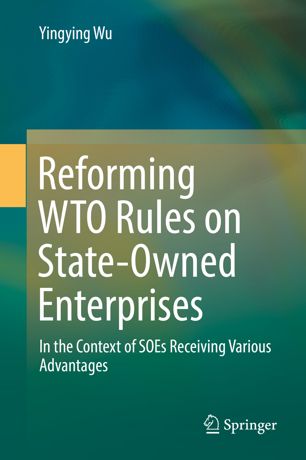

Most ebook files are in PDF format, so you can easily read them using various software such as Foxit Reader or directly on the Google Chrome browser.
Some ebook files are released by publishers in other formats such as .awz, .mobi, .epub, .fb2, etc. You may need to install specific software to read these formats on mobile/PC, such as Calibre.
Please read the tutorial at this link: https://ebookbell.com/faq
We offer FREE conversion to the popular formats you request; however, this may take some time. Therefore, right after payment, please email us, and we will try to provide the service as quickly as possible.
For some exceptional file formats or broken links (if any), please refrain from opening any disputes. Instead, email us first, and we will try to assist within a maximum of 6 hours.
EbookBell Team

0.0
0 reviewsThis book argues that the trade-distorting effects of advantages associated with SOEs are more severe from an economic perspective, and the behavior of SOEs after receiving advantages is of more concern, compared to private-owned enterprises (POEs). The premise is that the existence of SOEs per se is not the essential problem; rather, the underlying problems are (i) the disproportionate granting of advantages to SOEs (compared to POEs) and (ii) the behavior of SOEs once they receive advantages. The book offers a systematic analysis focusing on the various advantages granted to SOEs and their subsequent behavior. Its detailed analysis reveals the inadequacy of current WTO rules and is complemented by a number of concrete proposals.